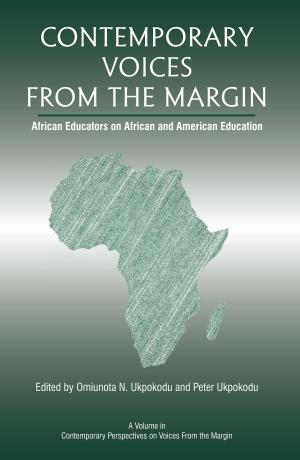The Changing Paradigm of Consulting
Adjusting to the FastPaced World
Business & Finance, Management & Leadership, Operations Research, Nonfiction, Reference & Language, Reference, Almanacs & Trivia, Questions & Answers, Management| Author: | ISBN: | 9781617354199 | |
| Publisher: | Information Age Publishing | Publication: | May 1, 2011 |
| Imprint: | Information Age Publishing | Language: | English |
| Author: | |
| ISBN: | 9781617354199 |
| Publisher: | Information Age Publishing |
| Publication: | May 1, 2011 |
| Imprint: | Information Age Publishing |
| Language: | English |
The 13th volume in the RMC series, The Changing Paradigm of Consulting, is based on the best papers presented at the Academy of Management’s Management Consulting Division’s fourth international conference (2009) on the underlying dynamics within the fastpaced world of business and management consulting. Held in Vienna, Austria, the conference brought together academicians, consultants and organizational practitioners to examine the changes taking place within the consulting field. The book’s 19 chapters are divided into five sections that explore the emergence and implications of this new paradigm, delineating and illustrating the paradigm shift taking placing within consulting, exploring the ramifications for global consulting, examining the challenges inherent in attempts to capture collaboration and cooperation in interorganizational networks, analyzing the push toward the professionalization and professionalism of consultancy, and assessing new approaches to management consulting, focusing on innovative instruments, tools and intervention frameworks. The book captures the myriad complexities and uncertainties faced by consultants and their clients and the concomitant search for appropriate mindsets, attitudes and orientations as well as methods, tools and techniques. As each of the chapters indicates, while there are significant challenges facing the consulting industry, there are also a number of promising frameworks and approaches that can help us successfully meet these challenges.
The 13th volume in the RMC series, The Changing Paradigm of Consulting, is based on the best papers presented at the Academy of Management’s Management Consulting Division’s fourth international conference (2009) on the underlying dynamics within the fastpaced world of business and management consulting. Held in Vienna, Austria, the conference brought together academicians, consultants and organizational practitioners to examine the changes taking place within the consulting field. The book’s 19 chapters are divided into five sections that explore the emergence and implications of this new paradigm, delineating and illustrating the paradigm shift taking placing within consulting, exploring the ramifications for global consulting, examining the challenges inherent in attempts to capture collaboration and cooperation in interorganizational networks, analyzing the push toward the professionalization and professionalism of consultancy, and assessing new approaches to management consulting, focusing on innovative instruments, tools and intervention frameworks. The book captures the myriad complexities and uncertainties faced by consultants and their clients and the concomitant search for appropriate mindsets, attitudes and orientations as well as methods, tools and techniques. As each of the chapters indicates, while there are significant challenges facing the consulting industry, there are also a number of promising frameworks and approaches that can help us successfully meet these challenges.















